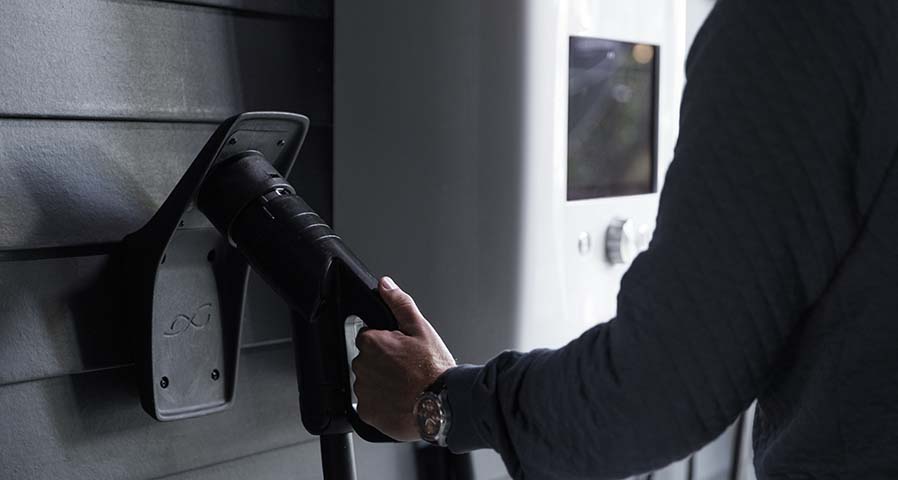Businesses developing EV charging infrastructure can take advantage of a variety of procurement options. It allows the site’s owner to meet various goals like equity, utilization, and environmental justice concerns. EV charger installation often involves dealing with payment options, data collection, signage, and parking. Other considerations include cost, regulations, efficiency, safety, charger placement, and the type of equipment. It’s a good idea to review the Infrastructure Development Checklist to ensure the critical factors are considered during the EV charger procurement process.
To give you an idea of how other organizations are completing their charging infrastructure procurement process, here are a few case studies.
Identify the Need for EV Charging Infrastructure
Considering the community’s EV charging needs is the first step when you are planning on procuring and installing charging infrastructure. Some points to consider include travel patterns, EV ownership numbers, the amount of time it takes to charge an EV battery, and the types of EVs likely to use the charging stations.
The California Energy Commission’s Electric Vehicle Charger Selection Guide provides considerations about charger purchase. Another resource is the EVI-Pro Lite tool. It provides information on the number and type of charging infrastructure necessary to support charging in state, city, and urban areas.
Ensuring Equitable Access
Organizations want to consider lower-income and underserved communities during their EV charger procurement process. These communities are often exposed to a higher ratio of environmental hazards, and EV charging stations encourage residents to transition to electric vehicles as a way to begin reducing the hazards.
How the EV charging infrastructure is designed is crucial. For example, providing Level 2 charging for multi-family dwellings allows residents to charge overnight. In neighborhoods with limited parking, DC fast charging stations are a better option.
In our previous blog, EV Charging Infrastructure – Developing a Plan, we cover the hidden costs associated with an EV charging project and the initial steps you need to take when joining the Charging EVolution!
Considering the Costs
Costs associated with EV charger procurement and installation vary by organization. However, equipment, installation, operation, and maintenance are costs every business needs to consider. Operation and maintenance costs include electricity usage, and any charging network fees.
Equipment Costs
The type of charger, and included features, are the primary equipment cost. You want the chargers to be theft-proof while offering the necessary networking capabilities, power, and the number of connectors. Onboard features like data collection and payment capabilities also affect costs.
Installation Costs
EV charger installation costs vary by site. The type of charger also plays a role in installation costs. Installing a Level 1 charger at home is noticeably more affordable than a Level 2 station at an apartment complex. DC fast chargers are the most expensive, both to procure and install.
A few factors, other than the type of charger, that affect installation costs are whether the site requires trenching, updated wiring, permits, and labor costs.
Did you know we have a Level 2 Home Charger? We offer a turn-key home charging experience, that provides you with commercial grade charging for half the cost in your own home.
Networking Costs
Non-networked EV chargers offer basic charging without monitoring or various payment options. Most EV charging infrastructure is networked, meaning the site requires internet access.
With networked EV chargers, businesses can monitor the stations from remote locations. EV drivers can take advantage of various payment options, and these chargers often diagnose and resolve problems.
Additional EV Charger Procurement Considerations
Other considerations for EV charger owners and operators include compliance, permits, safety, and signage, to name a few.
Compliance, Permits, and Inspections
EV charging infrastructure must be compliant with SAE International standards. It’s also a good idea to check with the Energy Star program. Your EV chargers may qualify for financial incentives in the form of rebates or tax credits.
You also want to check local regulations and codes for charger installations. The installations must meet local, state, and federal codes. You also need a licensed electrical contractor on-site to perform the installation.
Signage
During the installation process, consider the signage. You want to let EV drivers know where the charging stations are located. It’s also a good idea to use bright signage. Not only will it attract EV drivers, but the bright lights can deter theft and vandalism.
Ready to Start the EV Charger Procurement and Installation Process?
There’s a lot to consider during the planning stages for your EV charger procurement and installation process. Apogee Charging Solutions offers a turn-key customized EV charging solution to fit anyone’s needs and budget. Contact us today and learn how we can help streamline your EV charging project by calling 484-816-2076, emailing [email protected], or schedule a call that fits your need by clicking the button below.








0 Comments